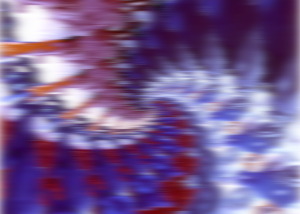Sound: Advanced Topics I


Live digital signal processing (DSP) of instruments is almost a staple at many new-music concerts these days. We thought it might therefore be a good idea to discuss it in this class. Yay! Fun with sound! We'll be going into some of the theory behind various DSP techniques as well as covering a few of the practicaliities of 'doing' real-time processing. We won't be delving too much into advanced control mechanisms for integrating computer processing into live work; for more information about this you might want to scan through the web pages for last spring's class. If you have quesions about those things, send 'em my way.
We'll also be using this as an excuse to show you different computer music languages, such as RTcmix, SuperCollider, possibly pd, and of course Max/MSP. Many of you will know one or more of these languages. Our goal in the class is to highlight the particular differences between them that makes them good for one application or another. We also plan to hit a few of the more 'esoteric' capabilities available in each language. If you do have a decent amount of experience with these languages, then the class should still be informative because of the specific tools and techniques we will be covering. Plus there's all that music stuff we do. During the term, if you are having serious problems, please come to talk to Onur or me so that we can work with you or adjust the syllabus to get things back on-track.
The ultimate objective is to create snazzy and amazing sounds. We
have no doubt that you will!
Here (again) are few links to software that we may be using in class:
Again, please let us know if you are having problems getting equipment or
software to work for you. In general, if you are having difficulty
understanding the programming paradigms
we are using or the applications and information we are covering.
be sure to talk to us. We'll be happy to sit down and work through
any issues with you.
Each week we do will become a link to information relating to that
class. We'll try to keep up with linking in class patches, examples
and information, but we may fall behind. Yell at us when we do.
It's always a good idea to make an appointment to see me, even during my purported office hours, because I often have to run around campus like a maniac doing strange, computer-music stuff. If you need to contact someone at the CMC or Music Department using your actual voice, the relevant phone numbers are:
I say this every year, and generally people believe it (I think): by this point in your career the last thing you should be worrying about is a grade. The main thing is to find something that you'd really like to do and then do it. Please don't try to impress us with your consummate knowledge and skill, we are more impressed by people who do things. Honest!
Hope you enjoy the class!
